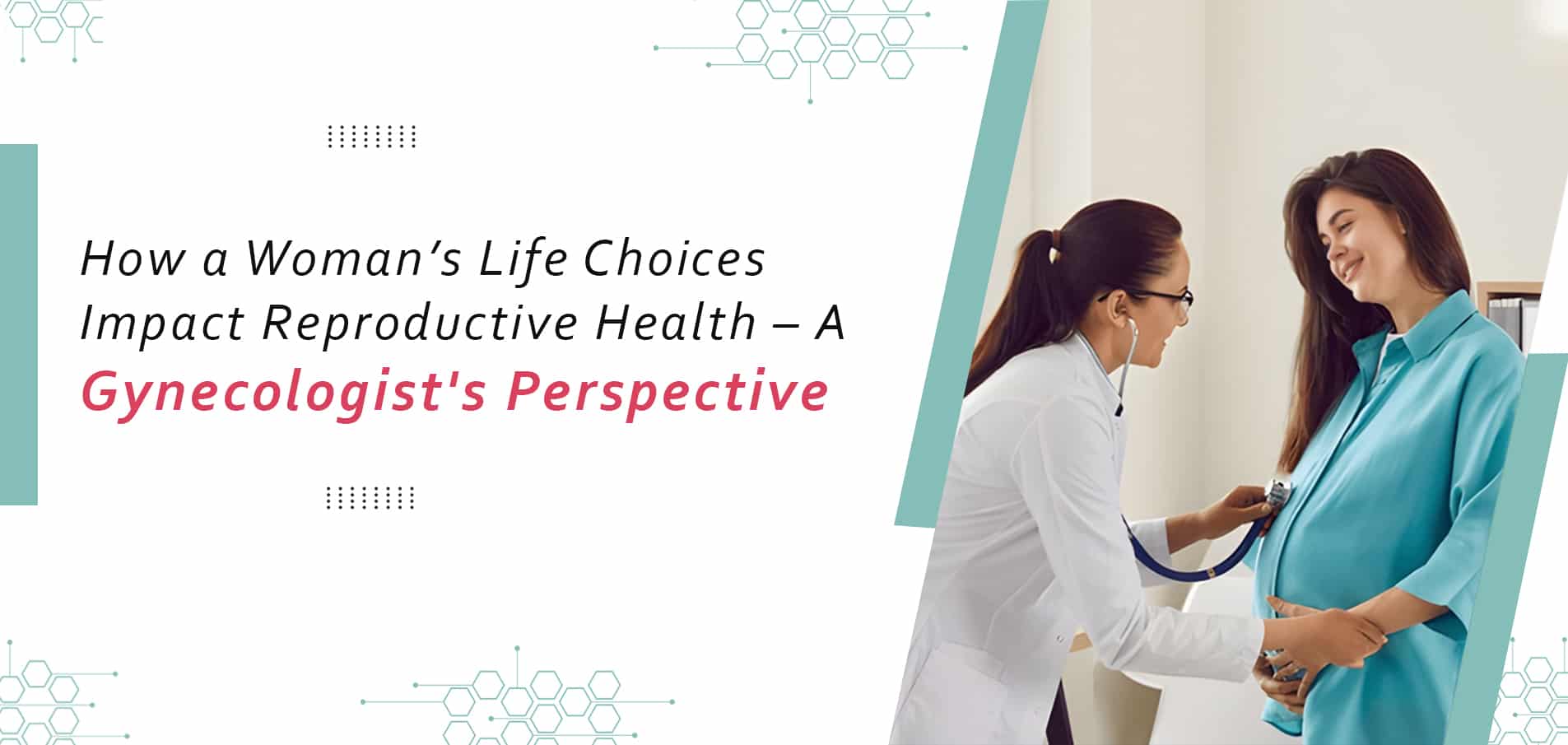One of the most common topics I discuss with patients as a Gynaecologist in St. Albans is how their lifestyle decisions impact their reproductive health. Every decision a woman makes can have a big impact on her reproductive health, from family planning and stress management to nutrition and exercise.
The ability to conceive is only one aspect of reproductive health; other aspects include menstrual health, sexual wellness, hormonal balance, and chronic illnesses like endometriosis or polycystic ovary syndrome (PCOS). So, understanding the connection between life choices and reproductive health is essential for making informed decisions at every stage of life.
This blog will highlight the most prevalent lifestyle factors that influence reproductive health, drawing on my professional experience as a Gynaecologist in Australia.
- Nutrition and Reproductive Health
Fertility and hormonal balance are greatly aided by diet. Obesity, insulin resistance, and hormonal imbalances are all consequences of poor nutrition, particularly diets heavy in processed foods, sugar, and unhealthy fats. These conditions are closely related to PCOS and infertility.
on the other hand, a diet high in nutrients, including lean proteins, whole grains, healthy fats, and an abundance of fruits and vegetables, can enhance ovulation, promote a regular menstrual cycle, and lower the risk of pregnancy complications. It is especially crucial for women who intend to become pregnant to make sure they are getting enough iron, folic acid, and omega-3 fatty acids.
As a practicing gynecologist in St. Albans, I frequently remind my patients that even minor dietary changes can have long-term positive effects on reproductive health.
- Exercise and Weight Management
Reproductive health is significantly impacted by physical activity. Menstrual cycles and ovulation can be controlled by maintaining a healthy body weight. Because body fat affects hormone production, women who are underweight or overweight may experience difficulties becoming pregnant.
Yoga, swimming, or brisk walking are examples of moderate exercise that enhances circulation, reduces stress, and promotes hormonal balance. Extreme or excessive exercise, however, can occasionally interfere with the menstrual cycle and impact fertility.
A balanced fitness regimen that encourages strength and well-being without going overboard is what women should strive for.
- Stress and Emotional Well-being
The impact of stress on reproductive health is frequently overlooked. Prolonged stress can worsen conditions like PMS and PCOS, delay ovulation, and interfere with hormone regulation. In addition to lowering libido, stress can also make conception more challenging.
As a Gynaecologist in Australia, I encourage women to integrate stress-reducing practices into their lives. Activities like meditation, journaling, or simply maintaining social connections can improve both emotional and reproductive health. Prioritising mental well-being is just as important as physical health.
- Sexual Health and Contraceptive Choices
Another crucial life choice involves sexual health and contraception. Women who engage in unprotected sex may be at risk of sexually transmitted infections (STIs), which can have long-term effects on fertility if left untreated.
Choosing the right contraceptive method also influences reproductive health. Hormonal contraceptives, for instance, can control cycles and lessen endometriosis or heavy bleeding symptoms, but they may also conceal underlying illnesses. Regular check-ups with a gynaecologist help ensure that contraceptive methods remain appropriate for each stage of life.
- Substance Use: Smoking, Alcohol, and Caffeine
Reproductive problems are closely associated with behaviours such as smoking and binge drinking. While excessive alcohol consumption can alter hormone balance and cause menstrual cycle disruption, smoking can harm eggs, lower fertility, and increase the risk of miscarriage.
When consumed in moderation, caffeine is generally safe, but too much of it can cause miscarriage or delay conception. Women who intend to become pregnant should be aware of the stimulants and toxins they consume on a daily basis.
- Career, Family Planning, and Timing
Many modern women delay getting pregnant because they are juggling work, school, and personal goals. Although more options are now available due to advancements in reproductive technology, it’s crucial to keep in mind that age has a big impact on fertility.
As people age, both the quantity and quality of eggs naturally decrease, especially after the age of 35. Understanding age-related changes in fertility is essential, but women should also feel empowered to decide when and how to start a family.
As part of their reproductive planning, some women might look into alternatives like egg freezing. Discussing these choices with a qualified Gynaecologist in St. Albans or anywhere in Australia can provide clarity and reassurance.
- Preventive Health and Regular Screenings
Routine gynaecological check-ups are one of the most proactive life choices women can make for their reproductive health. Pap smears, pelvic exams, breast checks, and ultrasound scans can help detect issues early, often before symptoms appear.
Preventive screenings are especially important for detecting conditions like cervical cancer, endometriosis, or fibroids at an early stage. By staying on top of routine check-ups, women can manage risks and maintain long-term reproductive health.
- Sleep and Daily Lifestyle Patterns
Sleep quality often gets overlooked, but poor sleep disrupts hormone production and affects fertility. Women who work night shifts or experience irregular sleep patterns may see changes in their menstrual cycle. Prioritising consistent, restorative sleep supports hormonal balance and overall well-being.
Daily lifestyle patterns—such as exposure to environmental toxins, sedentary habits, or poor hydration—also add up over time. Small, consistent improvements in daily routines can create lasting positive effects on reproductive health.
Conclusion
A woman’s reproductive health is shaped not by one single factor, but by the combination of her daily choices, lifestyle habits, and long-term decisions. From nutrition and exercise to stress management and preventive care, every choice matters.
As a practising Gynaecologist in Australia, I have seen firsthand how informed decisions empower women to protect and enhance their reproductive health. By taking a proactive approach—seeking professional advice, attending regular screenings, and adopting healthy habits—women can navigate every stage of life with confidence and resilience.
Your reproductive health is deeply connected to your overall well-being. The earlier you start making positive choices, the stronger your foundation will be for future health, fertility, and vitality.

